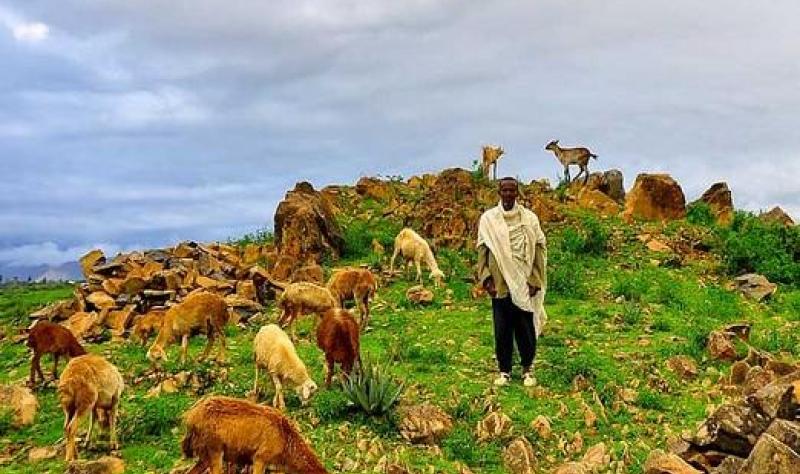A new phase 1 randomized controlled trial finds that a single dose of the ChAdox1 Rift Valley fever (RVF) vaccine appears safe, tolerable, and able to elicit a good immune response in healthy adults in endemic regions of the world.
For the single-center, single-blind trial published yesterday in The Lancet Infectious Diseases, a team led by researchers at the Uganda Research Institute and the London School of Hygiene and Tropical Medicine Uganda Research Unit in Uganda assigned 30 non-pregnant adults ages 18 to 50 to receive either the ChAdox1 RVF vaccine or a saline placebo.
Among vaccine recipients, 71% reported mild or moderate local adverse events such as warmth, itching, and injection-site pain. No local adverse events were reported in the placebo group. Eighty-three percent of both vaccine recipients and placebo recipients reported systemic adverse events, the most common of which were fever, headache, fatigue, and malaise. No serious adverse events were reported in either group.
Across all doses in the vaccine group, immunoglobulin G (IgG) antibody responses peaked on day 28 and gradually decreased through day 84. The vaccine also elicited cellular immune responses, which peaked around day 14. Like the IgG responses, the cellular responses diminished over time, but levels remained detectable on day 84.
“This randomized, placebo-controlled, dose-escalation trial provides the first evidence of a robust immune-response following ChAd0x1 RVF vaccination in an RVF-endemic setting,” write the researchers.
RVF a priority for vaccine development
RVF, a neglected, mosquito-borne disease that affects both animals and humans in Africa and the Arabian Peninsula, is considered a significant public health threat and has been earmarked for vaccine development by several major global health organizations.
The ChAdOx1 RVF vaccine represents a potentially transformative tool for RVF prevention.
Previous research suggested that the ChAd0x1 RVF vaccine, which was developed at the University of Oxford in England, was safe and effective in adults in non–RVF-endemic regions.
The recent study is a promising advancement, showing that the vaccine is effective in an RVF-endemic settings and is safe and elicited humoral and cellular immune responses throughout the 3-month follow-up period.
“The ChAdOx1 RVF vaccine represents a potentially transformative tool for RVF prevention, as evidenced by its ability to elicit neutralising antibodies against RVF virus (the main surrogate for protection) and its high protective efficacy against experimental RVF challenge in multiple livestock species in previous studies,” the authors write.
As of last week, 404 RVF cases, including 42 deaths, had been confirmed in Senegal and Mauritania from September 20 to October 30.
Future trials need longer follow-up, more women
The 3-month trial was long enough to track the most common vaccine side effects, but future trials with longer follow-up periods will be required to identify other possible adverse effects and better understand how the vaccine-initiated immune response to RSV diminishes over time, the researchers say.
The study also had a small number of participants and enrolled few women (six of 30 participants), due in part to the requirement that women be on effective birth control 28 days prior to enrollment. (Uptake of contraception is low in the community where researchers recruited participants.) But despite these limitations, “we believe no significant or reliable differences are expected by sex at this stage,” note the researchers.
The research team says that future trials should last a year or more and evaluate more diverse populations, such as children, pregnant women, and people with compromised immune systems.

